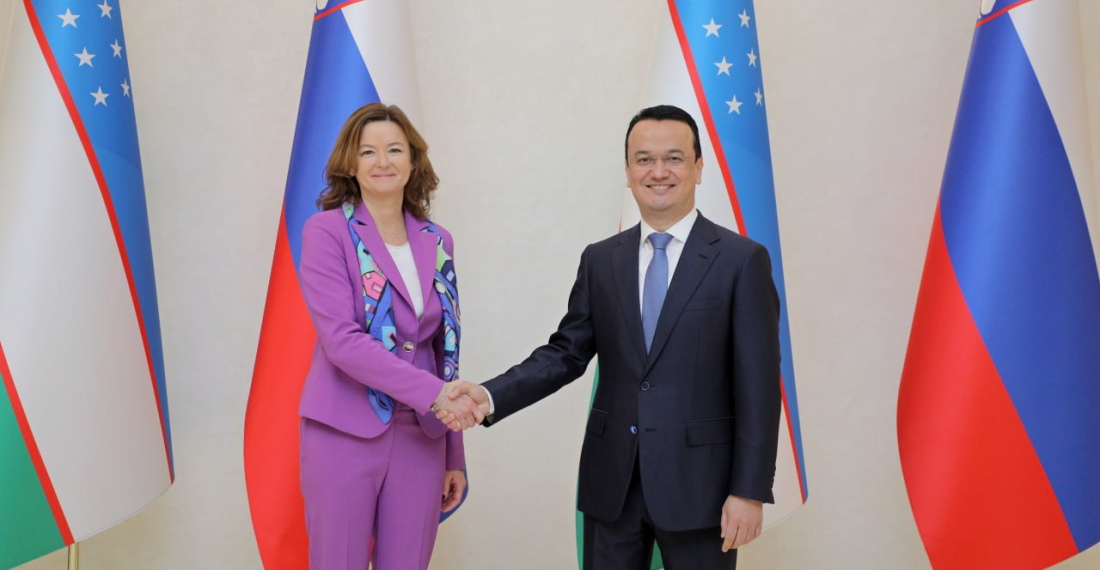Uzbekistan and Slovenia have this week strengthened bilateral ties with the signing of the "Agreement on Economic Cooperation between Uzbekistan and Slovenia" on Wednesday (8 February) in Tashkent.
This was followed by further talks between the two countries on Thursday (9 February) on the current state of and prospects for the development of bilateral cooperation in trade, economic, investment, transport and logistics and industrial cooperation.
These events occurred alongside the Uzbekistan-Slovenia Business Forum held in Tashkent on Wednesday, with the participation of heads of key ministries, departments, industry associations and more than 100 representatives of the business community of the two countries.
The Uzbek delegation at the Forum was headed by Deputy Prime Minister of the Republic of Uzbekistan Jamshid Khodjaev, and the Slovenian delegation was headed by Deputy Prime Minister - Minister of Foreign Affairs of the Republic of Slovenia Tanja Fajon.
Uzbek-Slovenian trade up by almost 40%
"In their welcoming speeches, the heads of delegations noted the timeliness of the intensification of bilateral cooperation, including in mutual trade, and the leading role of active interaction of business circles in this context," the press release on the website of the Uzbek Ministry of Investment, Industry and Trade noted.
According to the press release, foreign trade turnover between Uzbekistan and Slovenia has increased in volume by almost 40% over the past year. "To increase the indicators in foreign trade, the parties agreed on the issues of providing the necessary additional conditions for the business circles of the two countries," the statement added.
More specifically, the areas highlighted as offering prospects for partnership included the automotive industry, production of components, metal products, hydraulic turbines, pumps, joint production of pharmaceuticals, animal husbandry, horticulture and seed production, and retail.
A bilateral meeting in a narrow format between the heads of delegations was also held on the sidelines of the forum, during which the delegations discussed the development of bilateral trade, economic, investment, transport and logistics cooperation and prospects for increasing the scale of industrial cooperation between Uzbekistan and Slovenia.
Prospect of Tashkent-Ljubljana flights raised
In a meeting on Thursday (9 February), the Slovenian and Uzbek delegations continued their discussions on developing bilateral ties between the two countries.
The sides discussed organising regular "Made in Uzbekistan and Slovenia" exhibitions to develop investment partnerships and industrial cooperation. "In this context, the most promising areas for the implementation of joint projects are energy and agriculture, textile and pharmaceutical industries, infrastructure construction and IT," the corresponding press release said.
Furthermore, the head of the Slovenian delegation Tanja Fajon proposed to establish charter and regular flights between Tashkent and Ljubljana, and the parties agreed to hold consultations between the air carriers of the two countries online to discuss further practical steps in this direction.
Finally, the parties expressed their firm commitment to accelerate the practical implementation of the agreements reached, as well as to promote the initiative to establish the Uzbek-Slovenian Intergovernmental Commission on Economic Cooperation.







